Matteo Carli
Coupled reaction and diffusion governing interface evolution in solid-state batteries
Jun 12, 2025Abstract:Understanding and controlling the atomistic-level reactions governing the formation of the solid-electrolyte interphase (SEI) is crucial for the viability of next-generation solid state batteries. However, challenges persist due to difficulties in experimentally characterizing buried interfaces and limits in simulation speed and accuracy. We conduct large-scale explicit reactive simulations with quantum accuracy for a symmetric battery cell, {\symcell}, enabled by active learning and deep equivariant neural network interatomic potentials. To automatically characterize the coupled reactions and interdiffusion at the interface, we formulate and use unsupervised classification techniques based on clustering in the space of local atomic environments. Our analysis reveals the formation of a previously unreported crystalline disordered phase, Li$_2$S$_{0.72}$P$_{0.14}$Cl$_{0.14}$, in the SEI, that evaded previous predictions based purely on thermodynamics, underscoring the importance of explicit modeling of full reaction and transport kinetics. Our simulations agree with and explain experimental observations of the SEI formations and elucidate the Li creep mechanisms, critical to dendrite initiation, characterized by significant Li motion along the interface. Our approach is to crease a digital twin from first principles, without adjustable parameters fitted to experiment. As such, it offers capabilities to gain insights into atomistic dynamics governing complex heterogeneous processes in solid-state synthesis and electrochemistry.
Density Estimation via Binless Multidimensional Integration
Jul 10, 2024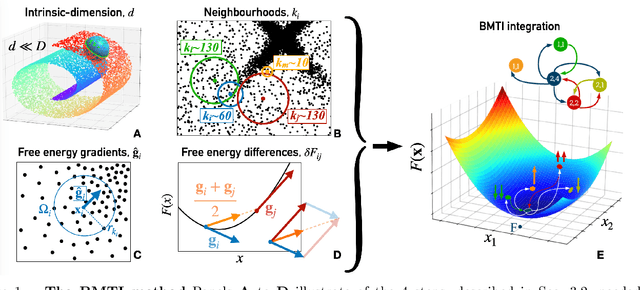
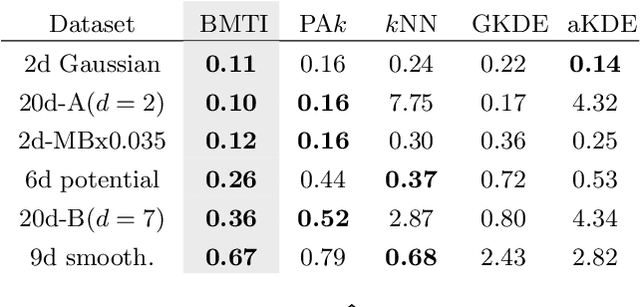

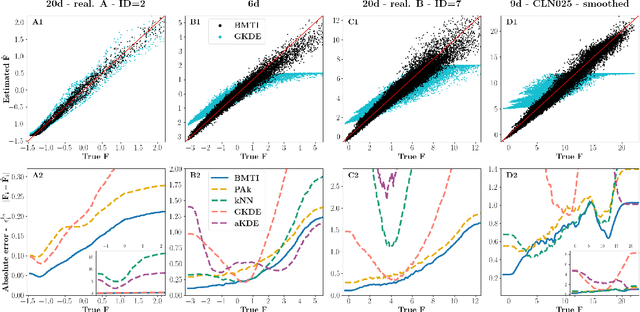
Abstract:We introduce the Binless Multidimensional Thermodynamic Integration (BMTI) method for nonparametric, robust, and data-efficient density estimation. BMTI estimates the logarithm of the density by initially computing log-density differences between neighbouring data points. Subsequently, such differences are integrated, weighted by their associated uncertainties, using a maximum-likelihood formulation. This procedure can be seen as an extension to a multidimensional setting of the thermodynamic integration, a technique developed in statistical physics. The method leverages the manifold hypothesis, estimating quantities within the intrinsic data manifold without defining an explicit coordinate map. It does not rely on any binning or space partitioning, but rather on the construction of a neighbourhood graph based on an adaptive bandwidth selection procedure. BMTI mitigates the limitations commonly associated with traditional nonparametric density estimators, effectively reconstructing smooth profiles even in high-dimensional embedding spaces. The method is tested on a variety of complex synthetic high-dimensional datasets, where it is shown to outperform traditional estimators, and is benchmarked on realistic datasets from the chemical physics literature.
DADApy: Distance-based Analysis of DAta-manifolds in Python
May 04, 2022

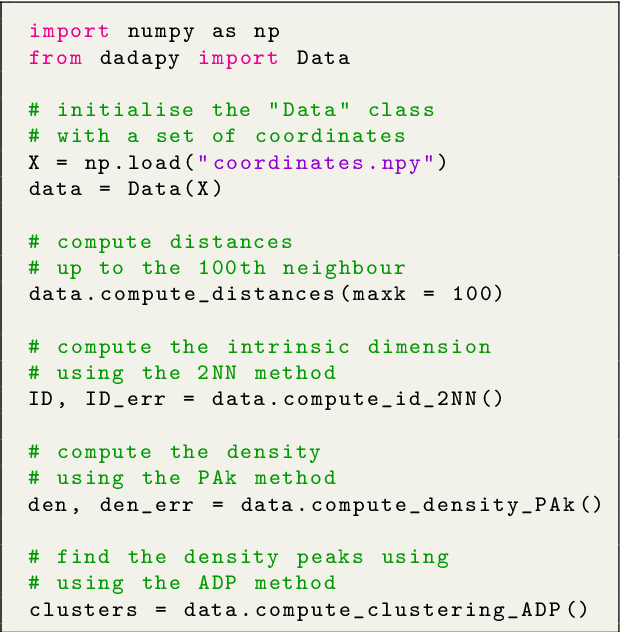
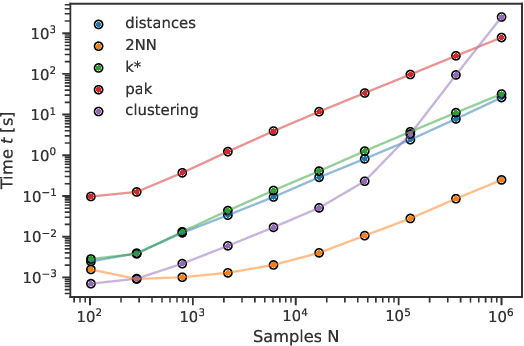
Abstract:DADApy is a python software package for analysing and characterising high-dimensional data manifolds. It provides methods for estimating the intrinsic dimension and the probability density, for performing density-based clustering and for comparing different distance metrics. We review the main functionalities of the package and exemplify its usage in toy cases and in a real-world application. The package is freely available under the open-source Apache 2.0 license and can be downloaded from the Github page https://github.com/sissa-data-science/DADApy.
 Add to Chrome
Add to Chrome Add to Firefox
Add to Firefox Add to Edge
Add to Edge